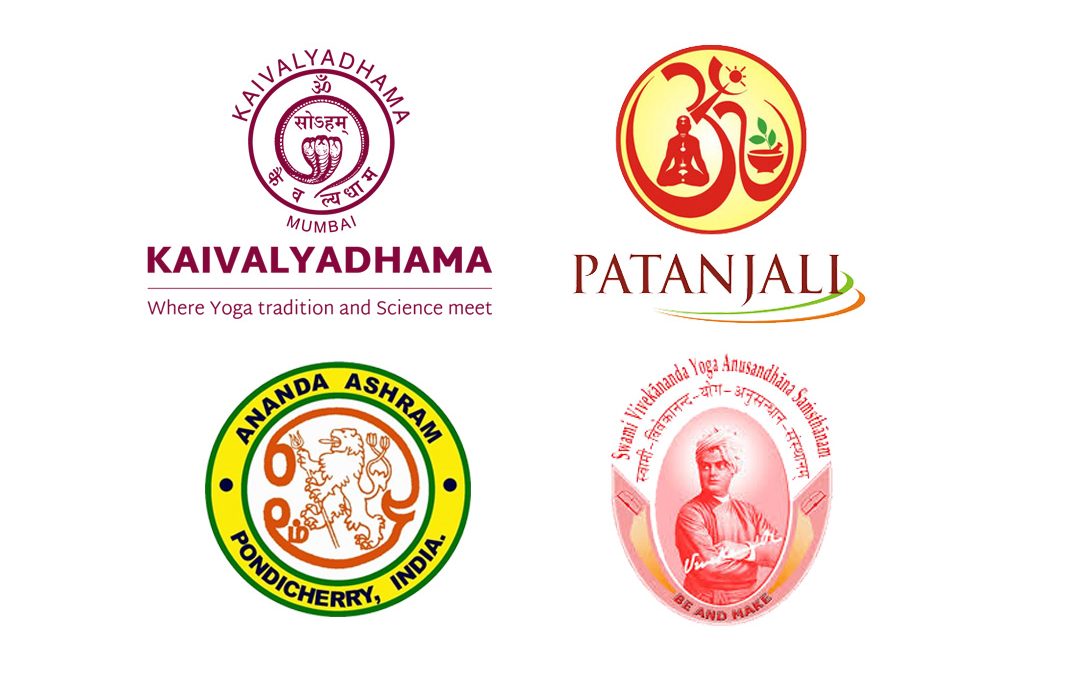Yoga Vidya Niketan (YVN), Member Institute of Indian Yoga Association successfully conducted its annual one-month Yoga Summer Course from May 1 to May 31, 2024. The course ran for one and a half hours daily across 41 physical centers around Mumbai and Navi Mumbai, extending…
Research is extremely important to support different approaches to health care. In the recent past, Yoga has been gaining lot of attention as Yoga Institutes, reseachers, scholars have started offering substantive clinical research evidence. In this issue, Indian Yoga Association brings to you the Research Papers published by our Member Institutes and other Institutes or individuals on Effect of Yoga, Pranayama on Sleep
International Centre for Yoga Education and Research

Effects of overnight sleep deprivation on autonomic function and perceived stress in young health professionals and their reversal through yogic relaxation (Shavasana).
Authors: Raghul S, Vasanthan S, Ananda Balayogi Bhavanani, Jaiganesh K, Madanmohan T
Published In: National Journal of Physiology, Pharmacy and Pharmacology
Published On: 2018
Extensive research has been done to demystify the effects of sleep deprivation on cognitive functions, memory, and reasoning ability. However, there is a lacuna in regard to the effects on autonomic function and perceived stress as well as its modulation through yogic relaxation. Healthcare professionals often work at night, and the effect of acute overnight sleep deprivation on their performance is crucial. Aims and Objectives: The present study was undertaken to study the effects of overnight sleep deprivation on autonomic function and perceived stress in health-care professionals and to determine its modulation through yogic relaxation (Shavasana). Materials and Methods: A total of 35 healthcare professionals, aged between 20 and 25 years, were recruited from emergency services wing (casualty) of MGMC and RI, Puducherry, and taught yogic relaxation. Heart rate (HR), blood pressure (BP), and HR variability (HRV) were recorded and Cohen’s perceived stress scale (PSS) administered before the commencement of day duty. Parameters were again recorded after overnight sleep deprivation due to night shift work and then after they practiced yogic relaxation (Shavasana). As data passed normality testing, Student’s paired t-test was used to compare the changes after sleep deprivation and then after yogic relaxation. Results: Overnight sleep deprivation resulted in statistically significant (P < 0.05) increases in systolic BP (SBP), low frequency (LF), LF/high frequency (HF), diastolic BP (DBP), PSS, and mean HR. This was coupled with significant decreases in mean RR, SDNN, pNN50, HF, and RMSSD. Following yogic relaxation, these changes were reversed, and significant decreases were witnessed in LF, LF/ HF, SBP, mean HR, DBP, and PSS with significant increases in mean RR, pNN50, HF, RMSSD, and SDNN. Conclusion: The findings of our study reiterate the negative effects of sleep deprivation on cardiac autonomic status. Such deleterious effects may be partially reversed by practicing yogic relaxation (Shavasana). Such conscious relaxation may be able to help correct imbalance of autonomic nervous system by enhancing parasympathetic tone and reducing sympathetic over activity.
Kaivalyadhama S.M.Y.M. Samiti

Yoga and Naturopathy Treatment for Insomnia: A Case report
Author: Anita Verma, Sanjay Shete, Ritu Prasad, Akshata Badave, Satish Pathak
Published In: Journal of Primary Care Specialties
Published On: January-April 2022
Abstract: Insomnia is the most prevalent sleep disorder wherein the patient experiences difficulty initiating and maintaining sleep, along with non-refreshing sleep. It adversely affects a person’s professional life, physical and mental health as well as overall quality of life. A 42‑year‑old female, self-employed, presented with severe anxiety, panic attacks, and insomnia at Kaivalyadhama Health Care Centre, Lonavla. This case study was undertaken to explore the cumulative effect of yoga and naturopathy on anxiety disorders and insomnia. The patient was assessed on day 1 and after completion of 30 days therapy for Sleep Quality, Depression, Anxiety, Stress and Musculoskeletal Pain by using standard questionnaires. The patient underwent yoga and naturopathy treatment for 1 month at Kaivalyadhama Health Care Centre. The results of present case study revealed significant reduction in depression, anxiety, stress, and musculoskeletal pain after 30 days of yoga and naturopathy intervention. The patient also showed improvement in sleep quality and reduction in musculoskeletal pain which was sustained even after 2 months. Thus, an integrative therapy of yoga and naturopathy can be implemented in patients suffering from anxiety disorders and insomnia.
Patanjali Yogpeeth

Changes in vigilance, self-rated sleep and state anxiety in military personnel in India following yoga
Author: Shirley Telles, Ram Kumar Gupta, Sadhna Verma, Niranjan Kala, and Acharya Balkrishna
Published On: 28 July 2018
Abstract: Objectives: To study the effects of 9 days of yoga on self-rated sleep, state anxiety and performance in a vigilance test among border security force (BSF) personnel. Seven hundred and twenty-two BSF personnel took part in the trial. They were all males, with an average age of 30.9 ± 7.4 years. All of them were involved in guarding the country’s border. They were deputed for 9 days residential training in yoga. Before and after training they were assessed for self-rated sleep, state anxiety and vigilance. Results: The results suggest the benefits of yoga in BSF personnel. The BSF personnel showed a significant increase in scores in the vigilance test, a decrease in state anxiety, and improved self-rated sleep.
Swami Vivekananda Yoga Anusandhana Samsthana

Cross-Cultural Study on the Effects of 10 Days of Online Mind Sound Resonance Technique (MSRT) on State Anxiety, Stress, Quality of Sleep, and Mindfulness
Published In: ASEAN Journal of Psychiatry, Vol. 22 (S1),
Published On: October-November 2021
Author: Shukla Isha, Sudheer Deshpande, Tikhe Sham Ganpat, Hongasandra Ramarao Nagendra
Abstract: Objectives: The purpose of this pilot randomized control trial study was to understand the effects of a 10-day online intervention of a yoga and chanting-based relaxation technique called Mind Sound Resonance Technique (MSRT) on measures of anxiety, stress, sleep, and mindfulness. This study was conducted in parallel within the United States and India. Two-hundred and ten participants were recruited for this pilot study, fifty participants from India and one-hundred and sixty participants from the United States. Participants were initially administered a series of questionnaires to assess measures of state anxiety, stress, quality of sleep, and mindfulness. Each day, participants received a link at 9 AM local time containing the practice video of MSRT. Upon completion of the 10-day intervention, participants were administered the same series of questionnaires to assess any changes in the previously mentioned measures. Sixty-five participants completed all portions of the study and were compensated. Data analysis was conducted, showing no statistically significant differences after the intervention, including cross-cultural differences. However, several sleep related questions showed statistically significant improvements in certain aspects of sleep such as restfulness and an improvement in insomnia. Several confounding factors could have contributed to the lack of statistically significant results. The findings of this pilot study suggest that further refined research within the effectiveness of an online Mind Sound Resonance Technique intervention specifically on various aspects of sleep such as insomnia and quality of sleep – should be designed and implemented.
















